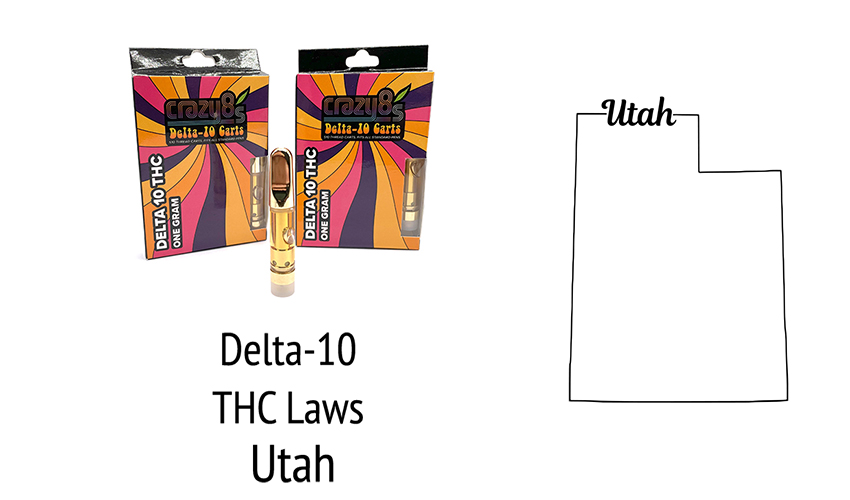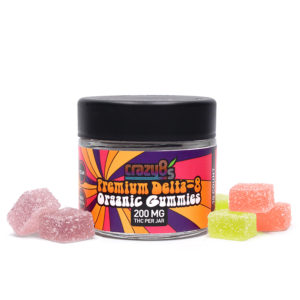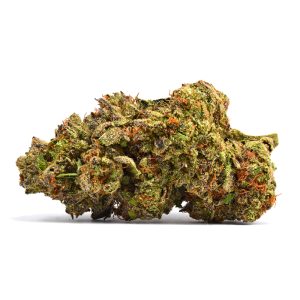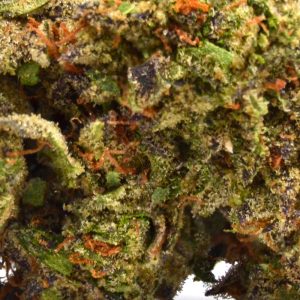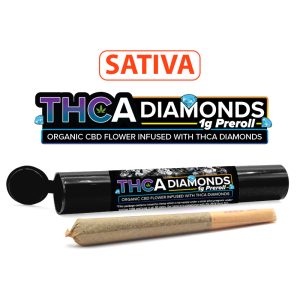The sudden surge of novel hemp-derived products like Delta-8 and Delta-10 THC brought hemp enthusiasts more product options — and a new way of looking at the hemp plant. However, not all states are on the same boat regarding the legality of these compounds.
Utah, for instance, holds stringent views towards cannabis. Is Delta-10 THC legal in Utah? Can you order it online? If so, where to buy tried and tested D-10 products in the Beehive State? Let’s look at the current hemp laws & regulations in Utah.
Is It Legal: Utah Delta-10 THC Laws
The short and simple answer is: NO! Delta-10 THC is NOT legal in Utah.
What Is Delta-10 THC?
Delta-10 tetrahydrocannabinol (D-10 THC) is another mildly intoxicating cannabinoid present in the hemp plant in minuscule amounts. This compound is an isomer of Delta-8 and Delta-9 THC — it shares the same chemical formula as them, but due to different arrangement of atoms, exhibits different properties.
D-10 THC offers an alternate kind of “mind high” that’s uplifting, boosts energy, and elevates sharpness of mind — ideal for daytime use. This cannabinoid provides the perfect balance against D-8’s soothing “body” high because its effects resemble sativa cannabis strains.
We have a lot to learn about this cannabinoid, but studies show that D-10 THC’s intoxicating properties fall within a similar range as Delta-8. Both compounds are less intoxicating than Delta-9 THC and don’t cause the typical effects of anxiety and paranoia.
Buy Delta-10 THC in Utah NOW
Because tetrahydrocannabinols are illegal in the state, we don’t recommend buying hemp Delta-10 THC products in Utah.
Mr. Hemp Flower offers the best D-8 and D-10 THC vapes, concentrates, flower, and edibles. So, if the law loosens up, you can legally order online from our website. The availability of Delta-10 THC products is limited at the moment because only a few companies like Mr. Hemp Flower offer pure and safe products.
For now, you should definitely check out the most potent hemp-derived, whole plant PCR hemp oil on the market. This CBD oil contains less than 0.3% Delta-9 THC and is completely legal in Utah. Customers who’ve tried this tincture swear in its power to aid sleep and pain. The tincture is enriched with whole-plant hemp extract that contains the entire cannabinoid profile and naturally extracted terpenes.
You can also consider our vegan, sugar-free Full Spectrum CBD Gummies. They come with a detailed Certificate of Analysis and contain less than 0.3% Delta-9 THC. Both products are safe, effective, and offer the substantial benefits of whole-plant hemp extract for your body and mind.
Continued, Is Delta-10 THC Legal in Utah?
Unfortunately, hemp-derived Delta-10 THC is NOT legal in Utah.
The Beehive State considers all tetrahydrocannabinol isomers — regardless if derived from hemp or marijuana — controlled substances. Under Chapter 37 of the Utah Controlled Substances Act, tetrahydrocannabinols and their derivatives, isomers, and synthetic equivalents are controlled substances.
The state kept a pretty strict view towards hemp that aligns with federal law and doesn’t allow the manufacture and sale of CBD foods and beverages.
After the passage of the 2018 Farm Bill, Utah legalized hemp and hemp-derived products on a broad scale. The state law defines hemp as “Cannabis sativa L. and any part of such plant whether growing or not, with a Delta-9 tetrahydrocannabinol concentration of not more than 0.3 percent on a dry weight basis.”
The Utah Medical Cannabis Act legalized CBD oil with less than 0.3% THC for eligible patients. Adults don’t need a registration card to purchase hemp-derived CBD products in Utah.
Delta-10 THC and Federal Law
The legality of Delta-10 THC on a federal level is complicated because it’s unknown whether it’s considered “synthetic.” As you may know, D-10 THC occurs in the hemp plant in very tiny amounts. To create it in large quantities, labs use hemp-derived cannabidiol (CBD) and process it using catalysts.
Compared to ”synthetic” THCs like Spice, D-10 is a naturally occurring, real THC isomer. But, because of the way it’s manufactured — through chemical synthesis — it could be deemed “synthetic” by the Drug Enforcement Administration. In its Interim Rule, the DEA states that “all synthetically derived tetrahydrocannabinols remain Schedule I controlled substances.”
Federal law doesn’t define synthetic THCs, so until more clarification is provided, the legal status of this compound remains murky.
Another key point regarding the legality of these compounds is their intoxicating nature. Delta-10 THC has the power to get the user “high,” which goes against the initial thought behind legalizing a non-intoxicating plant like hemp.
Legislators decided to take a step forward in legalizing this cannabis variety on a federal level because it was deemed “harmless.” Now, we can see that gap between science and law regarding cannabis because the Farm Bill of 2018 excluded all “hemp tetrahydrocannabinols” from the controlled substances list. The industry is expecting clarification from the feds regarding this issue. Until then, D-10 THC products are legally sold in most states across the nation.
Bottom line
As of this writing, Delta-10 THC is NOT legal to buy in the Beehive State. Utah legalized medical cannabis and restricted the sale of hemp-CBD in foods and beverages. Residents of this state should avoid ordering D-10 THC products until the law loosens up.

FAQ’s
Is Delta 10 legal to buy in Utah?
No. Utah’s Controlled Substances Act lists tetrahydrocannabinols, their synthetic equivalents, derivatives, and isomers as illegal.
Where to buy Delta 10 in Utah?
We don’t recommend ordering D-10 THC products online if you live in Utah.
Can I order Delta 10 online legally?
Most brands don’t ship to Utah due to strict laws. Only residents of D-10 friendly states should buy the cannabinoid online legally.
Is Delta 10 THC legal in all 50 states?
Nope. More than a dozen states have expressly banned or are in the process of restricting products containing Delta-10 THC, including Alaska, Arizona, Arkansas, Colorado, Connecticut, Delaware, Idaho, Iowa, Montana, Mississippi, New York, North Dakota, Kentucky, Rhode Island, Utah, and Vermont.
Read our legal disclaimer HERE. While we try to stay as up-to-date as possible on all state laws, you should do your own due diligence and work with a legal professional to ensure you are operating legally in your state or territory at all times.
We do our best to keep up with state and local policies and regulations, but since those regulations are changing so rapidly, we strongly encourage our customers to check their local state, city and, or county policies before placing an order, as it’s ultimately your responsibility to abide by your local regulations.

